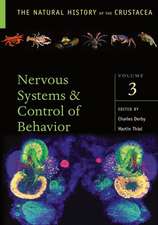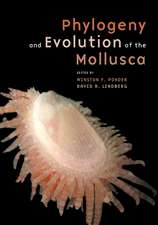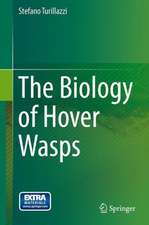Vector Biology, Ecology and Control
Editat de Peter W. Atkinsonen Limba Engleză Paperback – 2 noi 2014
| Toate formatele și edițiile | Preț | Express |
|---|---|---|
| Paperback (1) | 943.43 lei 6-8 săpt. | |
| SPRINGER NETHERLANDS – 2 noi 2014 | 943.43 lei 6-8 săpt. | |
| Hardback (1) | 947.98 lei 6-8 săpt. | |
| SPRINGER NETHERLANDS – 18 dec 2009 | 947.98 lei 6-8 săpt. |
Preț: 943.43 lei
Preț vechi: 1150.52 lei
-18% Nou
Puncte Express: 1415
Preț estimativ în valută:
180.55€ • 186.52$ • 150.26£
180.55€ • 186.52$ • 150.26£
Carte tipărită la comandă
Livrare economică 25 martie-08 aprilie
Preluare comenzi: 021 569.72.76
Specificații
ISBN-13: 9789400791275
ISBN-10: 9400791275
Pagini: 272
Ilustrații: XII, 260 p.
Dimensiuni: 155 x 235 x 14 mm
Greutate: 0.39 kg
Ediția:2010
Editura: SPRINGER NETHERLANDS
Colecția Springer
Locul publicării:Dordrecht, Netherlands
ISBN-10: 9400791275
Pagini: 272
Ilustrații: XII, 260 p.
Dimensiuni: 155 x 235 x 14 mm
Greutate: 0.39 kg
Ediția:2010
Editura: SPRINGER NETHERLANDS
Colecția Springer
Locul publicării:Dordrecht, Netherlands
Public țintă
ResearchCuprins
Global Perspectives on Vector-Borne Disease.- The Role of Global Climate Patterns in the Spatial and Temporal Distribution of Vector-Borne Disease.- The DDT Story: Environmentalism Over Rights to Health and Life.- Vector-Borne Diseases in the 21st Century: Counting Up or Counting Down?.- Emerging and Invasive Vector-Borne Diseases.- The Global Threat of Emergent/Re-emergent Vector-Borne Diseases.- The Need for Synergy and Value Creation in Contemporary Vector Research and Control.- “Dramas” Down-Under: Changes and Challenges in Australia.- Arboviruses and Their Control in the Field.- Novel Strategies to Control Aedes aegypti and Dengue.- Dengue Haemorrhagic Fever in Thailand: Current Incidence and Vector Management.- Using “Mulla’s Formula” to Estimate Percent Control.- Longitudinal Field Studies Will Guide a Paradigm Shift in Dengue Prevention.- Recombinant Bacterial Larvicides for Control of Important Mosquito Vectors of Disease.- Pest Management and Outreach in Disease Endemic Regions and in the United States: Practical, Novel and Attainable Strategies for Vector Control.- Current Prospects for the Control of the Vectors of Malaria and Filariasis.- Unraveling a Complex Transmission Cycle: Implications for Control.- Sustainable Mosquito Control in California: A Template for the World.- The Rhine Larviciding Program and Its Application to Vector Control.- Integrated Malaria Management.- Erratum.
Textul de pe ultima copertă
The control of mosquitoes and other insect vectors of human pathogens in an area-wide, environmentally and sustainable way is critical to solving global health problems in the developing world but also to industrialized countries that already have in place efficient vector control programs. The rapid spread of West Nile virus through the United States provides one example of how even a highly developed country can be relatively powerless against the spread of mosquito-borne disease. This volume illustrates how the efforts over half a century of a single investigator, Mir S. Mulla, and his students and collaborators have achieved sustainable vector insect control in regions of the world extending from the south-western United States to south-east Asia. These control strategies have been refined over these decades and now are employed in a diversity of ecosystems. Increased public awareness of global health and the importance placed on this for the future well-being of the entire human population makes the deployment and refinement of these strategies even more timely.
Caracteristici
Brings together papers on vector ecology, molecular biology as applied to mosquito vector control, and mosquito biological control together in one volume Covers control of mosquitoes and other vectors in California and from elsewhere around the world Centres around the achievements of one individual (and his students and colleagues) who has worked in this field of research for more than 50 years which is a highly unusual achievement in any discipline Deals with successful approaches using strategies which are environmentally friendly, which is becoming of increasing importance and so will be useful as a guide to future strategies employed by emerging vector ecologists










